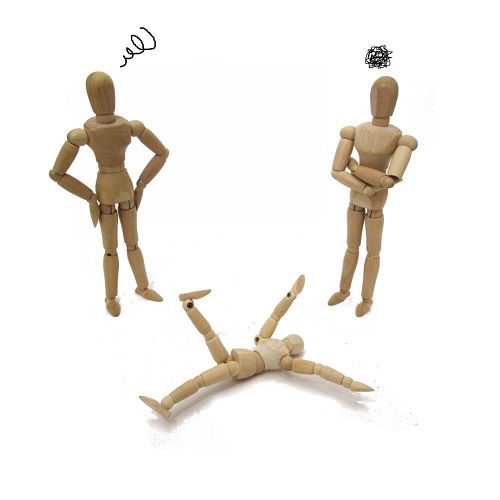Responding to Embarrassing Children's Behavior
by Kathy Slattengren, M. Ed., Priceless Parenting (sign up for monthly parenting newsletter and receive 20+ printable charts for kids and parents)

When your children misbehave in public, how do you feel? Most parents report they feel embarrassed, angry or frustrated. It’s hard to parent your best when you’re feeling like that!
Handling Tantrums When Out Shopping
Dena explained that giving her young children brief time outs worked well at home. However, the same idea failed miserably one day when she was shopping with her 5, 3 and 1-year-old children.
When Dena told 3-year-old Ryan that he could not have the sugary dinosaur cereal he wanted, he began screaming. She tried distracting him by pointing out a special display. When that didn’t work, she took the kids outside and had Ryan sit on a bench while she and the other two kids looked at the display in the window nearby.
She tried ignoring Ryan but then he got down and started banging his head on the ground. Dena quietly went over, sat Ryan back on the bench and walked away. Again he started banging his head.
She went back over and said "You need to stop banging your head. You're going to hurt yourself" and put him back on the bench. As she walked away he came running behind her screaming, throwing an even bigger tantrum.
Ryan’s behavior was clearly escalating and Dena was feeling increasingly upset. She ended up going back into the store with Ryan screaming, quickly buying the few things they needed and leaving.
While giving Ryan a short time out typically worked well, in this situation it made matters worse. Children develop the skill to pull themselves together and not have a tantrum somewhere between ages 3 and 5. Since it’s a developing skill, even if Ryan sometimes can do it public situations like this will make it more difficult.
Noticing the Impact of Your Reaction
In the heat of the moment, it is extremely challenging to switch approaches
when one approach isn’t working. How do you know if your reaction to your children’s behavior is making a bad situation worse?
If these two things are happening, then whatever you are doing is making things worse:
- You feel increasingly upset.
- Your child’s behavior is continuing and escalating.
When you realize that a situation didn’t go as well as you wished, it’s helpful to review what happened after the fact and figure out what you might want to do differently in the future.
Changing Tactics When a Consequence Isn’t Working
Mark was quite upset when he received a call from the police one evening and was asked to pick up his two sons at the station. While he tried hard to remain calm so he could think clearly, it wasn’t easy. On the way home he told Daniel and Logan that their consequence was being grounded for two weeks.
Daniel stayed home and did his chores for the two weeks but Logan kept leaving the house. Every time Logan broke the agreement, Mark added two more days to the time he was grounded. This didn’t stop Logan from leaving again and Mark felt increasingly angry with his defiance.
Mark knew that this consequence wasn’t working well. He was getting increasingly angry and Logan’s behavior was continuing. Mark and his wife sat down with Logan to try to work something else out.
They gave Logan the option of staying home for the remaining days or working on special projects around the house. Every two hours he worked on a project would replace one day of being grounded.
They suggested that one project he could do was paint their bedroom. Logan jumped on that idea and he did a terrific job painting the room. Both Logan and his parents were happy with this arrangement. When Logan had choices, he spent his time grappling with the choices instead of fighting the consequence.
Paying Attention to Your Feelings
When you experience strong feelings, your brain releases chemicals that affect your ability to think well. Given this, if you can it’s best to delay deciding on any consequences until you are calm.
However, this isn't always possible like in the store situation with Ryan. In those cases, the best approach may be leaving the situation as soon as possible, giving everyone a chance to calm down. Later you can think of other options to try like setting expectations ahead of time that you'll only be buying things on the list or giving Ryan a special task when shopping.
When you notice your child's behavior is continuing and escalating, you know it's time to think of a new approach. If you're struggling to find other options, ask another parent. It's always easier to see solutions to other people's parenting problems rather than your own!